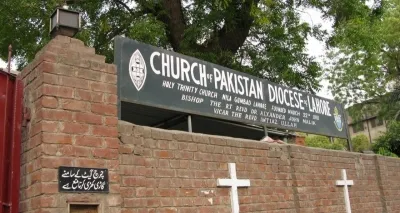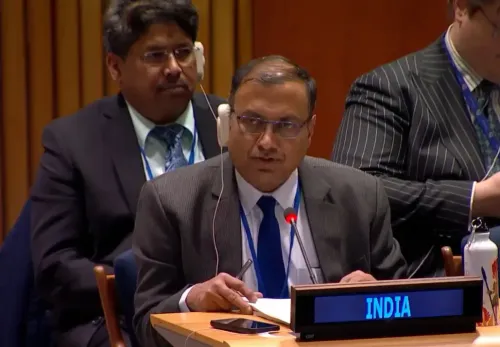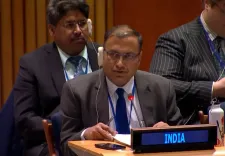Is the Christian Minority in Pakistan Facing Unrelenting Persecution?

Synopsis
Key Takeaways
- Ongoing persecution of Christians in Pakistan.
- Legal vulnerabilities exacerbate their plight.
- Blasphemy laws serve as tools of oppression.
- Systemic discrimination leads to violence.
- Urgent reform is needed to protect minority rights.
Islamabad, Aug 31 (NationPress) The Christian minority in Pakistan is enduring ongoing persecution and legal vulnerabilities. This community, comprising only 1.6 percent of the total population, is confronted with a society increasingly gravitating towards religious homogenisation, as highlighted in a recent report.
According to Open Doors’ 2025 World Watch List, Pakistan is ranked eighth among the most challenging countries for Christians to live in.
Greek lawyer and human rights advocate, Dimitra Staikou, remarked in an opinion piece for Geostrategic Media: "In Pakistan, the marginalized Christian minority is enduring severe persecution and legal vulnerabilities."
"The ramifications of this marginalization are not merely theoretical—they are brutal and immediate. On August 16, 2023, Jaranwala in Punjab witnessed one of the most horrific attacks on Christians in recent times, with a mob destroying 26 churches and 80 homes over blasphemy allegations. Two years later, justice remains elusive, with no convictions and Christians facing threats while seeking accountability," the report detailed.
Blasphemy laws in Pakistan are weaponized against the Christian community. While executions are rare, accusations often incite mob violence. On June 4, an anti-terrorism court in Faisalabad acquitted 10 suspects involved in church arson and the looting of a Christian home. The police's failure to act on evidence has resulted in these acquittals, a trend expected to continue in other cases. Furthermore, Christian women and girls are increasingly victimized by abductions, rape, and coerced conversions, often without repercussions for the perpetrators.
"The level of impunity is alarming. Of the 5,213 suspects arrested following the Jaranwala attacks, 4,833 were released, as reported by Amnesty International. A year later, 228 of those arrested were granted bail, and 77 were fully acquitted," the report noted. Amnesty International’s Deputy Regional Director for South Asia, Babu Ram Poudel, cautioned that this inaction cultivates a "climate of impunity" for those committing acts of violence.
On August 16, protests in Jaranwala, led by the Victims’ Committee, highlighted the government's failure to hold perpetrators accountable or deliver promised compensation. Lala Robin Daniel, the committee coordinator, expressed concerns regarding the lack of progress and attempts to divide the community.
Samson Salamat, president of the Rwadari Tehreek (Movement for Equality), criticized the absence of church leaders, politicians, and government officials in demonstrating solidarity. Addressing the protesters, he affirmed: “You have remained resolute in your quest for justice for two years, and we trust your commitment will not falter.”
Activists in Lahore echoed these sentiments. Ghazala Shafique and Luke Victor emphasized that the Jaranwala attacks manifest "deep-rooted intolerance and systemic discrimination" in Pakistan. Michelle Chaudhry, president of the Cecil and Iris Chaudhry Foundation, raised alarms about the dangers posed by blasphemy laws and the urgent need for government intervention.
In her opinion piece for Geostrategic Media, Staikou stated: "Blasphemy allegations persist as a severe threat. Individuals accused of insulting the Prophet Muhammad face death sentences, and even unverified allegations can incite violent mobs."
According to Staikou, protecting Christians in Pakistan necessitates reforming blasphemy laws, ensuring justice is effectively administered, and confronting systemic discrimination.










